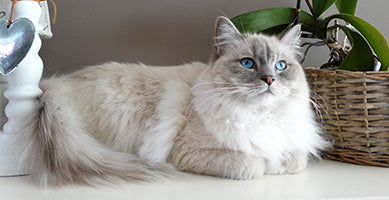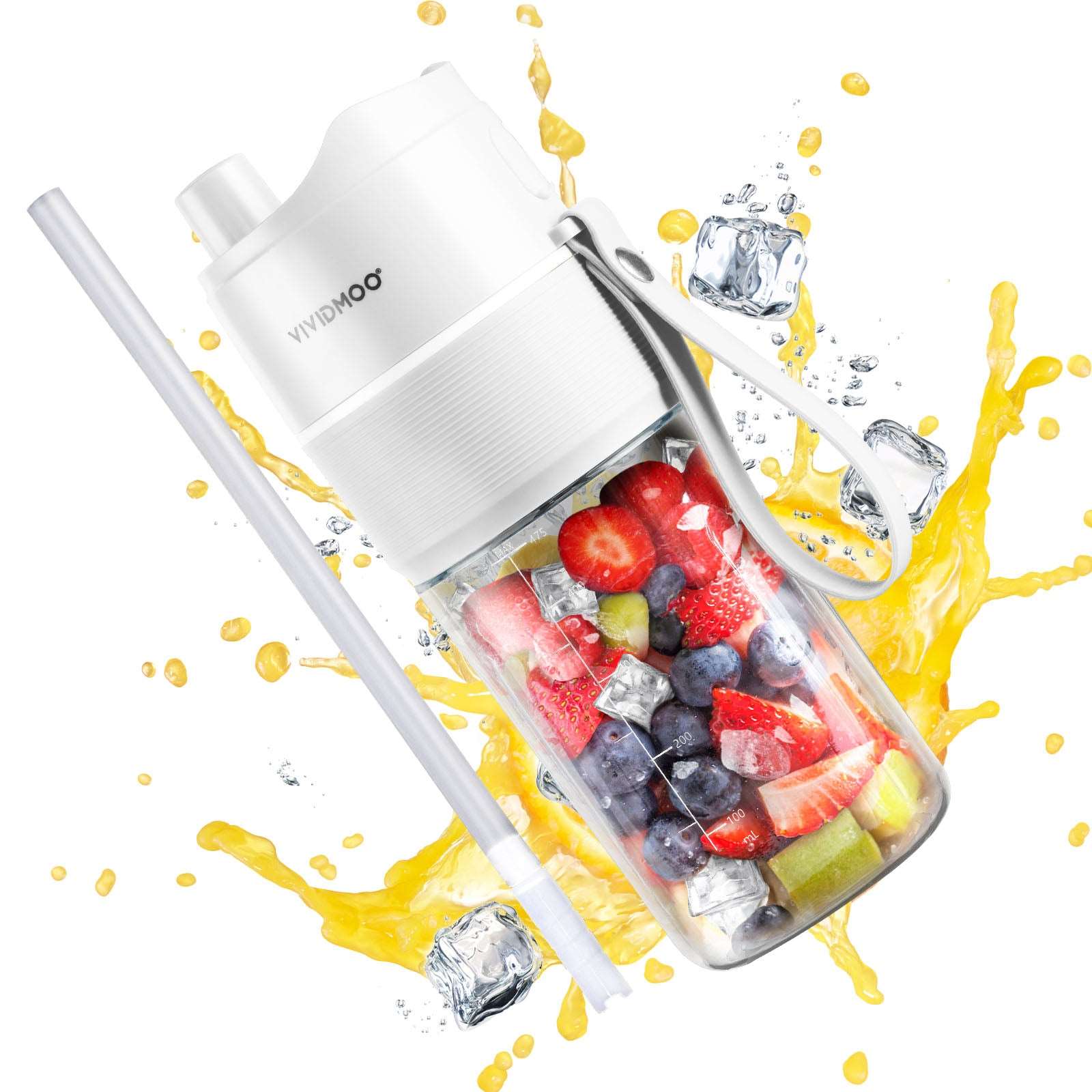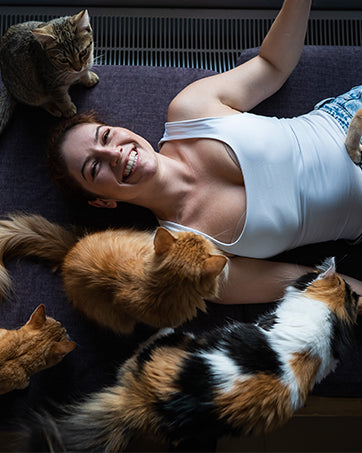Introduction
Caring for your cat means more than providing love, tasty meals, and cozy naps in the sun. Regular health checks are essential to ensure your feline friend remains happy and healthy. Today, we'll guide you through a 7-part health check that you can do at home, highlighting how the Vividmoo Smart Automatic Litter Box can assist in monitoring your cat's health, especially focusing on their fecal condition.
Caring for a cat requires a keen eye for signs of health issues. This guide provides professional insights into interpreting and addressing common health signs in your cat, ensuring they remain healthy and happy.
Cat Feces Analysis
Granular Shape: This indicates constipation, characterized by dry and hard stools.
Treatment: Increase your cat's water intake and provide steamed pumpkin and chicken breast to aid digestion.
Sausage-Shaped: Represents normal feces with a dry surface but not hard.
Treatment: Maintain current care practices.
Soft Banana Shape: Slightly soft and unformed stools may require attention.
Treatment: Monitor and incorporate probiotics into their diet 1-2 times daily.
Round Shape: Moist, well-formed stools are healthy.
Treatment: No action required, continue with current care.
Puddle of Chocolate: Indicates loose, semi-solid feces, potentially due to cold or gastroenteritis.
Treatment: Fast for two hours, then administer pediatric antidiarrheal with their food, twice daily.
Watery: Represents diarrhea, necessitating immediate medical attention due to potential underlying causes such as inflammation or parasites.
Cat Vomiting Insights
Gastric Juice: Yellow-green, watery vomit suggests fasting-induced acid reflux.
Treatment: Avoid immediate feeding; instead, offer soft, canned food.
Contains Objects: Vomit with undigested food suggests ingestion of inappropriate items.
Treatment: Fast for two hours; if no blood is present, further intervention may not be needed.
Undigested Food: Rapid eating without proper chewing can lead to vomiting.
Treatment: Encourage smaller, more frequent meals.
Parasites Present: Vomit containing parasites demands immediate deworming.
Bright Red Liquid: Indicates a potential emergency requiring prompt veterinary care.
Eye Health in Cats
No Abnormalities: Presence of eye discharge only.
Treatment: Clean with veterinary-approved eye wash daily.
Slightly Moist Eyelids: Observe for further symptoms; mild tearing without redness typically resolves without intervention.
Red and Swollen Eyes: Suggests inflammation.
Treatment: Apply pet-specific Pfizer eye ointment twice daily.
Pus Leakage: Indicates a serious infection, requiring immediate veterinary attention.
Whitening of the Eyeball: Similar to cataracts, requires diagnosis and targeted treatment.
Nasal Health
Slightly Moist Nose: Normal and healthy.
Treatment: Continue current care.
Wet Nose with Water Droplets: Could indicate a cold.
Treatment: Administer doxycycline based on body weight for 3-5 days.
Pus and Odor: Suggests bacterial infection.
Treatment: Seek prompt veterinary care.
Black Secretions in Nostrils
Treatment: Gently clean with a moist cotton swab without causing discomfort.
Oral Health
Dental Plaque: Yellowish-brown tartar indicates the need for dental care.
Treatment: Provide dental snacks to help remove tartar.
Dental Calculus: Dark brown tartar requires regular dental hygiene.
Treatment: Regular brushing or professional cleaning may be necessary.
Periodontitis: Indicated by smelly, brown secretions.
Treatment: Immediate veterinary intervention is required.
Stomatitis: Redness and ulceration of the mucous membrane.
Treatment: Oral cephalosporin administration until symptoms subside.
Ear Health
Minor Earwax: Cleanliness is generally good.
Treatment: Use ear cleaner and cotton swabs for cleaning.
Ear Mites: Black scabs within the ear indicate infestation.
Treatment: Clean with ear solution daily until resolved.
Otitis: Significant black discoloration and pus.
Treatment: Oral cephalosporin prescribed by a veterinarian is recommended.
Bacterial Otitis: Ear canal blocked by dark earwax.
Treatment: Immediate veterinary care is essential.
Skin Condition
Mites: Dry dandruff and knotted fur due to mite eggs.
Treatment: External deworming is crucial, ideally monthly.
Dandruff: Early symptom of abdominal transmission.
Treatment: Veterinary examination is advised.
Dull and Rough Fur: Indicates nutritional deficiencies.
Treatment: Supplement with fish oil and lecithin, including squid or egg yolk in the diet.
Cat Ringworm: Circular scabs and flakes under UV light.
Treatment: Daily disinfection with iodophor and application of dermatitis spray.
Conclusion
Regular home check-ups, combined with the innovative Vividmoo Smart Automatic Litter Box, offer a comprehensive way to monitor your cat's health, providing peace of mind and early detection of potential issues. By understanding and recognizing these common health signs, monitoring and addressing these signs promptly can prevent minor issues from becoming major concerns, ensuring your cat's health and well-being.












